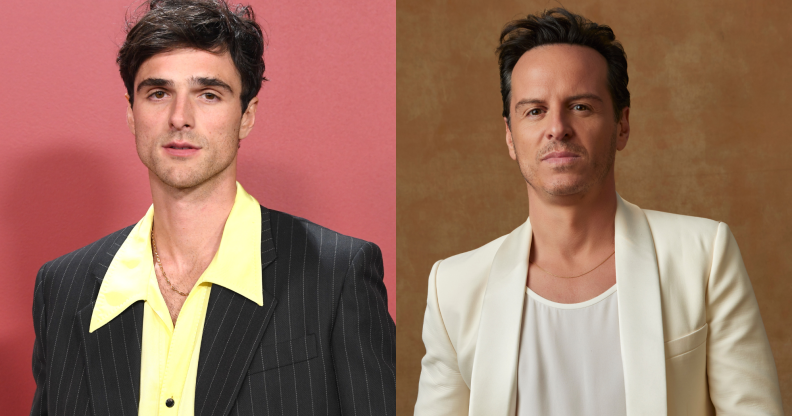The latest phrase has gained notoriety with Gen Z users on social media. (Steve Granitz/FilmMagic/Dan Doperalski/Golden Globes 2024/Golden Globes 2024 via Getty Images)
You can’t go on TikTok without seeing our favourite celebrities being referred to as “so babygirl”.
The latest phrase has gained notoriety with Gen Z users on social media. Jacob Elordi, Andrew Scott, Paul Mescal and Timothée Chalamet are just a few of the celebrities being dubbed as “so babygirl”.
Renée Rap even called Elordi “so babygirl” when they led a recent episode of Saturday Night Live. Meanwhile, Mescal even called his co-star Scott the phrase in a recent interview. “I think you’re ‘so babygirl’ in real life,” he told the 47-year-old.
The phrase “babygirl” isn’t exactly new, and has been spotted on the app for around a year. It describes not just the attractiveness of the person in question, but also their down-to-earth, genuine personality.
As per Urban Dictionary, someone who is “so babygirl” is “extremely sexually attractive with a good personality”.
Despite appearing as a gendered term, “babygirl” can be used to describe just about anybody, no matter their gender identity or sexual orientation.
What is ‘babygirl’ energy?
Relationship therapist Dr Emily May at Private Sugar Club tells PinkNews that the rise of the term “reflects a real cultural shift towards a more inclusive understanding of masculinity”.
“[The phrase] is helping us move away from traditional and often restrictive notions of what it means to be masculine,” May explains. “Toxic masculinity — which usually involves suppressing emotions and the devaluation of ‘feminine traits’ in men — is on the decline, which can only be a positive development, allowing for a more diverse expression of gender identity.
“Evolving language and a broader acceptance of more diverse gender expressions can be incredibly affirming for the LGBTQ+ community,” she adds. “It encourages acceptance of individuals regardless of how they express their gender identity. This shift promotes inclusivity and fosters an environment where people feel safe to explore and express their true selves without judgment.”
Sex therapist Melissa Cook at Sofia Gray also finds the evolution away from toxic masculinity “interesting”. In recent times, we’ve seen the downfall of Andrew Tate, while other icons have gone against typical male stereotypes. Like Dwyane Wade, who painted his nails, and upset a few bigots in the process.
“Gen Z’s use of the term ‘babygirl’ reflects the changing views on masculinity,” she begins. “This term sees a shift towards embracing softer, more vulnerable aspects of masculinity.”
She continues: “This trend not only encourages inclusivity and diversity in gender identity, which can be particularly significant to the LGBTQ+ community but also helps in challenging rigid stereotypes and fostering a more accepting society for all individuals, regardless of how they identify or express themselves.”
How did this story make you feel?
Sending reaction…
Thanks for your feedback!
